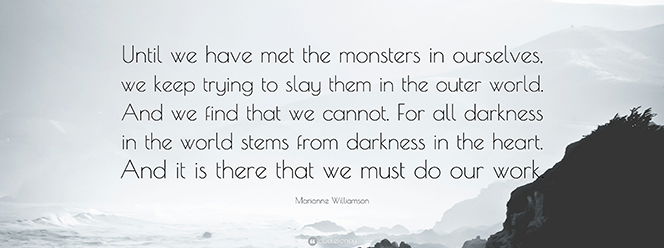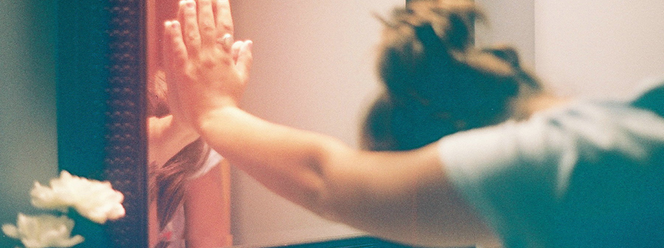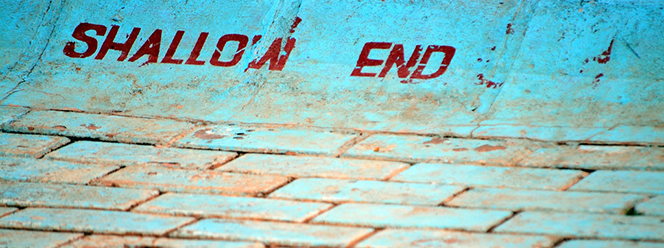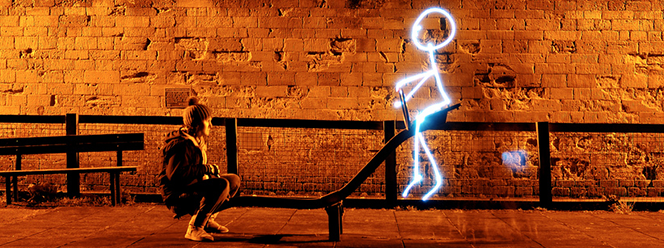
by Tara Joyce | Mar 10, 2017 | Cultural Creativity

We need to resolve our past, so we can expose our truth and move forward with our lives. We are drowning in our unresolved emotions. Unrecognized, they weigh us down. Depressed by them, we unknowingly hide and mask them.
So often we think our uncomfortable emotions away, doing everything we can not to feel the truth of them. Our rationalizations become what is real to us, and what we feel. What is not comfortable we do not acknowledge.
Disconnected from the truth of our emotions, we become unaware of what we truly value and love, and we find ourselves investing in things that are not right for us. Not acknowledging what we feel, we look to others to validate how we ‘should’ feel, using them to rationalize what we want to feel into ‘reality’.
We need to resolve our past and what is uncomfortable to us, so we can fully live our lives. To do this, we need to be vulnerable with ourselves and with others. This begins with accepting our fear of vulnerability, of intimacy, of our defenses being breached. It’s okay it feels more safe to feel in control and to remain hidden, it’s okay to believe then scary things won’t happen that we can’t handle.
While it is nice to feel we can make predictable our feelings and their magnitude, we simply cannot. At some point, we must surrender to our lack of control. We must hand over the tightly held and relinquish the guarded. Despite what we fear, our hearts will not break, we will not be in mortal danger. We can peer deeply in. We can feel our hurt and survive. We don’t need to protect ourselves from the truth of our feelings. What we need is to drop the mask and to reclaim our vulnerability.
When we don’t explore the emotions we find so uncomfortable, we create conditions that support others in avoiding theirs. Yet when we face our past and our truth, we make it easier for others to the same. There are always reasons why not to feel something, why not to be something, why not to do something. In helping our self take the risk of vulnerability, we release our self from our past and allow our self to move forward with our life. Being what we truly are, we support others in being the same.

by Tara Joyce | Dec 16, 2016 | Self/Business Growth

It’s a risk. I’m afraid. What will you think of me? What will I think of me? If I tell my hidden truth?
I feel so ashamed. How could I show you that? I can not take the chance of showing my true face to you.
The idea of bearing it is terrifying. In fact, it is more than that, it is life threatening. My neediness threatens my life. It terrifies me. I don’t want to feel it.
I must protect from it. I can not need love. I can not show how I need you. I must protect who I truly am behind my performance of independence.
Why do I feel the truth in my heart is so ugly? So shameful? Why do I feel I must cover it up?
If you knew what was in me, if I showed it to you, I’d be under threat. From me. From you. From the weight of my unbearably inconvenient truth.
Yet if I can break through my fear and allow myself to be vulnerable, what lies on the other side? Could the very thing I fear so much be the very thing to set me free?
But of course. My life is not threatened by my vulnerability. Not anymore, at least. I’m now an adult, in charge of my life. I have the ability to unlearn the faux-protection granted by aloofness and lack-of-care, and allow myself to re-access the wholeness within me. With courage, I have what it takes to face the truth in my heart. I can be me. Vulnerable. Truthful. Completely me.
photo credit: emily mucha

by Tara Joyce | Aug 5, 2016 | Self/Business Growth

Not wanting to feel it. Apathy towards the whole thing.
Why bother?
Isn’t it curious how we can love something. Someone. So much.
And feel so completely rejected and disappointed by them.
Two sides of a coin.
Love and pain.
How can I care so much, and yet desire to care so little?
Apathy. An easy option filled with complications.
Eventually, the truth will catch up with me.
Apathy. A dangerous act to perform.
It’s hard to keep up. It takes its toll.
Especially when masking the pain of rejection and disappointment.
How long can I pretend before I forget, and the mask falls from my face?
Can I trust myself? Am I that good of an actor?
What if I wore my rejection, my disappointment, without shame?
How might that change things? If you and I were to know the truth?
No reason to hide.
The love and pain, revealed.
Vulnerable. Exposed.
It is what it is. Equanimity. Towards my disappointment and my rejection.
I can learn to love them, as I do you. You’re intertwined, one. Ever present.
All of what I feel deserves to be felt.
Equally acceptable is my love and my pain.
photo credit: Karla Cantu

by Tara Joyce | Jul 19, 2016 | Self/Business Growth

To see only yourself in every reflection, and only the parts you want to see, a life is lived in the shallow end. Where there is deepness and darkness, you do not probe, unwilling to go deeper. Uncomfortable with its truth, you reject and dismiss that which you care not to understand.
To be shallow is to only see—and believe in—the surface facade of others, and of yourself. This shiny surface is so alluring when the darker, less “perfect” aspects of yourself are unacceptable. You live on the surface, so that life’s deeper truths and anyone who expresses them, can easily be rejected.
To dip below the surface is supremely threatening, for to acknowledge the depth possible is to accept the imperfect life we each bear. Dipping below your own facade, your own shiny surface, to acknowledge and accept your own imperfections is more than your shallow heart will currently bear.
Instead, it is easier to see that “other” people have issues, that there is something supremely “wrong” with them. It is easier to point fingers and to place blame. It is easier to not understand and to judge. Resolved of responsibility, comfortable in the shallow end, you do not see the deeper, darker truth of yourself hidden in plain sight. Everyone in your life is a mirror reflecting back the parts you love and dislike about yourself. Those which provoke you and numb you, those which drive you to turn away and to hide from your darkness, are the very reflections you can learn the most from.
photo credit: stttjin

by Tara Joyce | Jun 10, 2016 | Cultural Creativity, Personal Branding

It’s an endless quest to be good enough in another person’s eyes. Not facing our own thoughts and feelings, we measure our self using the eyes of another. Unable to acknowledge it’s really our own perception of self that we use as the measure—not theirs.
It takes practice to feel good and whole as we are. Sometimes, rather than doing this, we buy clothes and things, chase and stockpile money, and do what we can to be “better” than others. In comparison, we find our worth.
Rather than question and/or remove ourselves from the mindsets and situations that exert and encourage this dance of superiority/inferiority, we can find ourselves feeding into it and trying to puff ourselves up in order to match it—and even beat it. In our armour of clothes, hair, beautiful things, and pomp we are elevated and protected.
A culture of buying into the need to feel superior (and invariably, inferior) to others. A collective experience encouraging us and teaching us all to feel so very insecure.
Repeatedly pushed and pulled to feel inferior and superior, internally and externally, this wild see-saw of emotion is crazy-making. In our totality, we are no better nor worse, yet we each have qualities that make us “better” than another. It’s focusing on these qualities that gets us caught on the see-saw. Feeling superior ultimately leads to feeling inferior. And vice versa. The pendulum keeps swinging, the see-saw rises and falls.
How do we know what is impressive to another? Thinking what impresses us is what impresses everyone leaves us in fantasy, believing everyone is like us. And they are not. Acknowledging our fantastical expectations, we are pulled by them less by them—and we’re less likely to push them on others, keeping ourselves on the see-saw.
We are neither as perfect nor as terrible as we imagine ourselves (and others) to be. Accepting this frees us from the push and pull to be “the best.” Equanimity actively dissolve the illusion surrounding us.
For our own happiness, we need to own the places where we compete and compare, where we feel inferior and superior to others. It’s so very okay that we ride the see-saw. It’s so very okay we measure our self against others. Owning this, we make the see-saw an easier ride for all of us. Now, the pendulum has less space to swing, and the ride becomes less wild. For the moment, in our truth, we are each good enough.
photo credit: Mike Leary










